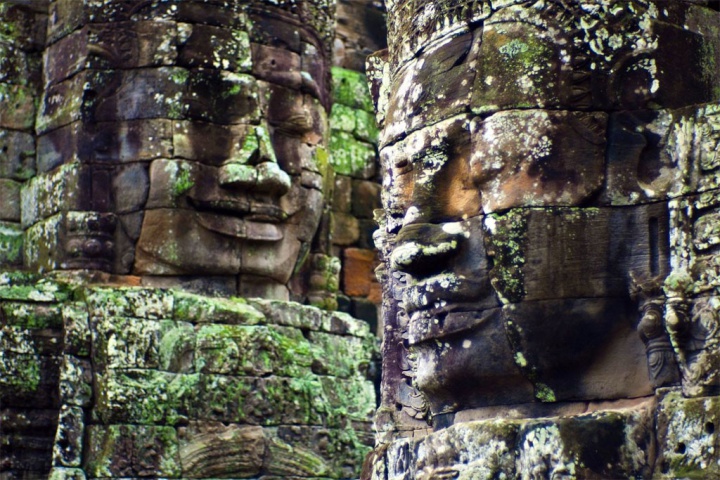Concern about Cambodia election after opposition ban
UN rights chief voices concern about Cambodia election after opposition ban

Statues on the Angkor Wat
temple in Siem Reap Cambodia. Photo: UNESCO
17 November 2017 – The United Nations human rights chief voiced grave concerns Friday about the conduct of credible, free and fair elections in Cambodia next year following the decision by the Supreme Court to dissolve the main opposition party.
“An effective multi-party democracy requires an opposition that can operate freely without intimidation and threats – and the same goes for a credible, free and fair election,” said UN High Commissioner for Human Rights Zeid Ra'ad Al Hussein in a news release.
The court dissolved the Cambodian National Rescue Party (CNRP), the main opposition party, on Thursday after the Ministry of Interior complained that the opposition was plotting a so-called colour revolution against the Government. A total of 118 CNRP members were banned from political activity for five years.
“People need to be able to debate and discuss freely the political affairs of their country, and the decision to dissolve the CNRP has deprived over three million voters of their representation,” Mr. Zeid said.
The party's dissolution follows the arrest on 3 September of CNRP president Kem Sokha on charges of 'treason' related to comments made in 2013 about his grassroots political strategy to challenge the current Government.
“The use of law against the CNRP and its members is a smokescreen – it is the rule by law, and not the rule of law. The accusations against the CNRP and its members were vague, as were the legal provisions supporting the complaint to dissolve it,” Mr. Zeid said, adding the dissolution of the CNRP was based on alleged criminal acts by Kem Sokha which had not been proved in a court of law.
Mr. Zeid said the party's dissolution and the ban on its members was all the more worrying, given other measures by the Government in recent months, including closure and suspension of civil society groups as well several media companies. It has also been targeting individual journalists and members of non-governmental organizations.
“An essential component of all democracies is a vibrant civil society, including NGOs and press that may sometimes be critical of the Government,” said Mr. Zeid. “Imposing limits on civil society and shrinking their space serves only to stymie the creativity, innovation and ingenuity necessary for Cambodia to continue to develop, and to maintain peace.”
Similarly, he stressed, “a free press is essential to ensure that the public is properly informed of political and other issues so that people can be responsible and engaged actors.”


 New Zealand Defence Force: New Zealand-Led Task Force Makes $NZ375-million Drug Bust In The Middle East
New Zealand Defence Force: New Zealand-Led Task Force Makes $NZ375-million Drug Bust In The Middle East ICHRP: ICHRP Welcomes Duterte’s Arrest - A Landmark Step Towards Justice
ICHRP: ICHRP Welcomes Duterte’s Arrest - A Landmark Step Towards Justice UN High Commissioner for Human Rights: Philippines - Türk Says Arrest Of Former President Duterte Is Important Step Toward Accountability
UN High Commissioner for Human Rights: Philippines - Türk Says Arrest Of Former President Duterte Is Important Step Toward Accountability Professional Footballers Australia PFA: PFA Partners With UK’s ‘The Great Save’ To Reduce Football Kit Waste
Professional Footballers Australia PFA: PFA Partners With UK’s ‘The Great Save’ To Reduce Football Kit Waste Doctors Without Borders: Israeli Authorities Must Stop Collective Punishment Of Palestinians And Use Of Aid As A Tool Of War
Doctors Without Borders: Israeli Authorities Must Stop Collective Punishment Of Palestinians And Use Of Aid As A Tool Of War RNZ: New Child Sex Offence Charges For Disgraced Businessman Ron Brierley
RNZ: New Child Sex Offence Charges For Disgraced Businessman Ron Brierley